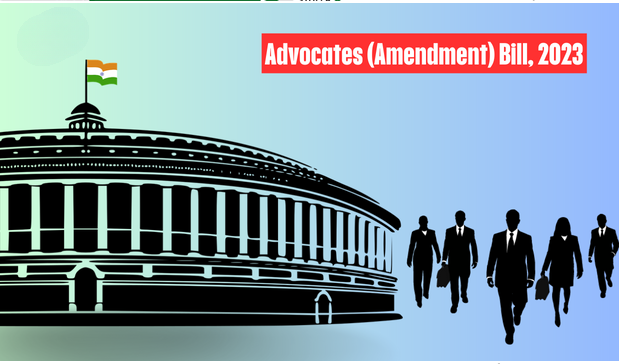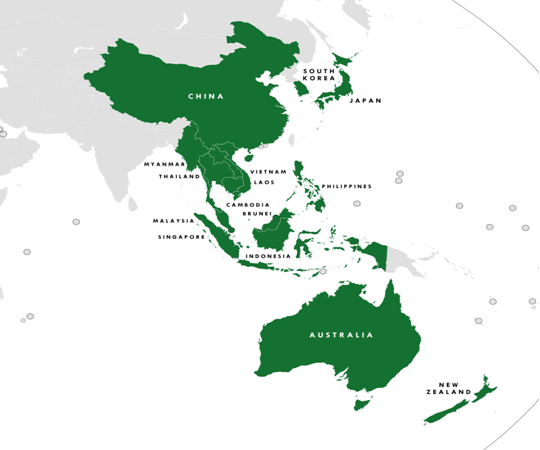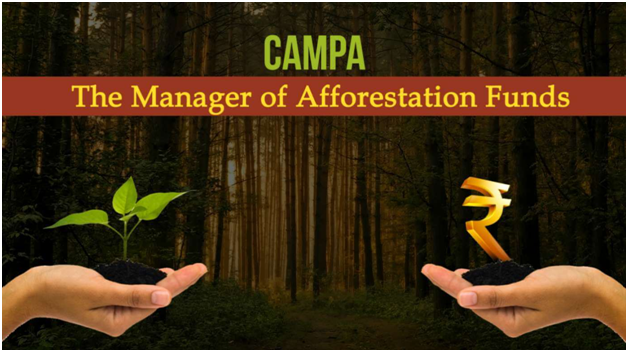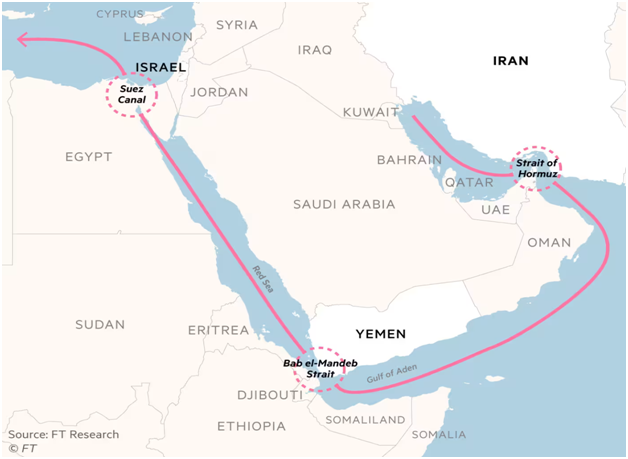Lok Sabha passes Advocates (Amendment) Bill to weed out touts from court complexes(The Hindu)

- 05 Dec 2023
Why is it in the News?
The Lok Sabha recently passed a Bill that seeks to regulate the legal profession by targeting “touts”, with Law Minister Arjun Ram Meghwal asserting there should be no role of such persons in courts.
About the Advocates (Amendment) Bill, 2023:
- The Rajya Sabha introduced the Advocates (Amendment) Bill, 2023, in August 2023.
- This bill amends the Advocates Act of 1961, specifically repealing certain sections related to touts under the Legal Practitioners Act of 1879.
- The 1961 Act consolidates laws regarding legal practitioners and establishes Bar Councils and the All-India Bar.
- Having already passed in the Rajya Sabha during the Monsoon Session, the bill aims to regulate the legal profession through a single act with a focus on addressing the issue of touts.
Key Features of the Advocates (Amendment) Bill, 2023:
- Touts: High Courts, district judges, sessions judges, district magistrates, and revenue officers are empowered to create and publish lists of touts.
- A tout is defined as a person who either seeks or secures the employment of a legal practitioner in legal matters for payment or frequents specific locations to obtain such employment.
- The Court or judge has the authority to bar any person listed as a tout from the premises of the Court.
- Preparation of Lists: Authorities with the power to create tout lists may instruct subordinate courts to conduct inquiries into individuals suspected or alleged to be touts.
- If proven, the person's name can be included in the list, ensuring due process is followed before inclusion.
- Penalty: Individuals acting as touts while being listed can face imprisonment up to three months, a fine up to Rs 500, or both.
Will India reassess its position on China-backed Asian trade bloc RCEP? (Business Standard)

- 05 Dec 2023
Why is it in the News?
India is keeping a watchful eye on its neighbour countries’ recent deliberations to join the China-backed Asian trade bloc, Regional Comprehensive Economic Partnership (RCEP), although the government is yet to “re-evaluate” the position it took four years ago.
What is Regional Comprehensive Economic Partnership (RCEP)?
- RCEP, or the Regional Comprehensive Economic Partnership, is a proposed agreement involving ASEAN member states and their free trade agreement partners.
- Introduced in 2011, negotiations started in 2012, aiming to finalize the deal by November 2019.
- After the withdrawal of India, there are 15 members of RCEP, which includes 10 ASEAN countries and 5 other countries, namely:
- Australia, Brunei, Cambodia, China, Indonesia, Japan, South Korea, Laos, Malaysia, Myanmar, New Zealand, the Philippines, Singapore, Thailand, and Vietnam.
- RCEP's objective is to establish an integrated market, facilitating the availability of products and services across the region.
- The negotiations cover trade, investment, intellectual property, dispute settlement, e-commerce, SMEs, and economic cooperation.
- Initially proposed by Beijing in 2012 to counter the Trans-Pacific Partnership, RCEP became a key tool for China after the U.S. withdrew from the TPP in 2016.
- India chose not to sign the RCEP in 2019 due to concerns about its industries competing with China and potential flooding of Indian markets.
- Despite some sectors anticipating gains, India emphasized the need for a deal favorable to all countries and sectors.
SC pulls up Bhopal municipal corporation for flouting Solid Waste Management Rules (DownToEarth)

- 05 Dec 2023
Why is it in the News?
There is non-compliance with the provision of the Solid Waste Management Rules, 2016 by the Bhopal Municipal Corporation, the Supreme Court observed December 1, 2023 after going through the affidavit filed by the corporation.
What is About Compensatory Afforestation Fund Management and Planning Authority (CAMPA)?
- The Supreme Court of India, in 2001, mandated the creation of the Compensatory Afforestation Fund and the Compensatory Afforestation Fund Management and Planning Authority (CAMPA).
- Initially, an ad-hoc CAMPA was established in 2006 to manage the Compensatory Afforestation Fund.
- (CAMPA) are meant to promote afforestation and regeneration activities as a way of compensating for forest land diverted to non-forest uses.
- National CAMPA Advisory Council has been established as per orders of The Hon’ble Supreme Court with the following mandate:
- Lay down broad guidelines for State CAMPA.
- Facilitate scientific, technological and other assistance that may be required by State CAMPA.
- Make recommendations to State CAMPA based on a review of their plans and programmes.
- Provide a mechanism to State CAMPA to resolve issues of an inter-state or Centre-State character.
CAMPA Act:
- To address the loss of forest area and ensure sustainability, the Government of India introduced the CAMPA (Compensatory Afforestation Fund Management and Planning Authority) Act.
- This legislation establishes the National Compensatory Afforestation Fund in the Public Account of India and a State Compensatory Afforestation Fund in the Public Account of each state.
- These funds receive payments for compensatory afforestation, net present value of forests (NPV), and other project-specific payments.
- The National Fund gets 10% of these funds, while the State Funds receive the remaining 90%.
- As per the Act, companies diverting forest land must provide alternative land for compensatory afforestation.
- For afforestation purposes, companies are required to pay for planting new trees in the alternative land provided to the state.
Houthi attacks on vessels in Red Sea sound alarm for global trade (Financial Times)

- 05 Dec 2023
Why is it in the News?
Shipowners have called for more military protection on maritime routes in the Middle East after attacks by Iran-backed rebels in the Red Sea sparked fears of new disruptions to global trade, including of energy supplies.
Key Facts the about Red Sea:
- The Red Sea is a semi-enclosed inlet of the Indian Ocean situated between Africa and Asia.
- It stands out as one of the warmest seas globally.
- Connecting to the Arabian Sea and the Indian Ocean through the Gulf of Aden and Bab El-Mandeb strait to the south, it is divided by the Sinai Peninsula into the Gulf of Aqaba and the Gulf of Suez in the north.
- The Gulf of Suez is linked to the Mediterranean Sea via the famous Suez Canal.
- The Red Sea is bordered by Yemen and Saudi Arabia to the east, while Egypt is to the north and west, and Sudan, Eritrea, and Djibouti are to the west.
- Covering an area of about 438,000 km2, it stretches approximately 2,250 km.
- The sea's maximum width is 355 km, and its deepest point, the central Suakin Trough, reaches 3,040 m, with an estimated average depth of 490 m.
- Notable islands in the Red Sea include Tiran Island near the mouth of the Gulf of Aqaba and Shadwan Island at the entrance of the Gulf of Suez.
Meghalaya’s Lakadong turmeric gets GI Tag (Northeast Live)

- 05 Dec 2023
Why is it in the News?
Recently, Meghalaya’s Lakadong turmeric has received the Geographical Indication (GI) tag from the Registrar of Geographical Indications in Chennai.
About Lakadong Turmeric:
- Lakadong Turmeric is known as one of the best turmerics in the world and is sourced from a village in Meghalaya’s Jaintia Hills.
- Lakadong, a distinct type of turmeric, is exceptionally abundant in curcumin, with levels ranging from 7-8%, a significant contrast to the typical varieties containing only 2-3% curcumin.
- Curcumin has numerous health benefits, including anti-inflammatory and antioxidant properties.
- Under the “One District One Product” scheme, Lakadong turmeric gained recognition in the West Jaintia Hills district.
- India produces 78% of the world’s turmeric.
What is One District One Product (ODOP)?
- One District One Product (ODOP) initiative is aimed at fostering balanced regional development across all districts of the country.
- The initiative aims to select, brand, and promote at least One Product from each District (One District - One Product) of the country for enabling holistic socioeconomic growth across all regions.
- The ODOP Initiative has identified a total of 1102 products from 761 districts across the country.
- Under the ODOP initiative, all products have been selected by States/UTs by taking into consideration the existing ecosystem on the ground, products identified under Districts as Export Hubs (DEH), and GI-tagged products.
- The finalized list is communicated to DPIIT by the relevant Department of States/UTs.
- All activities including exhibitions, capacity building, etc. are undertaken at the State/UT and district level, in consultation and coordination with the States/UTs.
